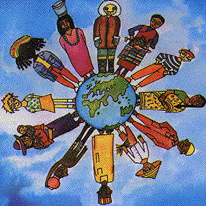 Jeremiah Owyang posted a question about how we define “Online Communities”. In referencing Jake Mckee’s post on the subject he wonders is Twitter a community?
Jeremiah Owyang posted a question about how we define “Online Communities”. In referencing Jake Mckee’s post on the subject he wonders is Twitter a community?
Before we answer that question we have to define what a “Community” is? As has been pointed out by Robin Hamman, “Community” “has dozens if not hundreds of distinct definitions”. In practice we shouold go by the most common definition that covers the specific context. If we go to the dictionary we find a definition of “a social, religious, occupational, or other group sharing common characteristics or interests and perceived or perceiving itself as distinct in some respect from the larger society within which it exists (e.g. “The Business Community”)”.
The key’s points here are:
1. Common Interests.
2. Perception of being distinct and separate.
When we examine Twitter and find that the common interest is Twitter and the activities on it, and that the perceived distinction is of those who use/get twitter and those that do not. So yes, by definition, Twitter IS a community.
That said, groups of followers within Twitter may NOT be a sub-community since they do not identify themselves as being separate from Twitter itself. We are not the “following Scoble” community.
Of course all this “definition” talk begs the question, how should we forge this new online vocabulary? Like any lexicon it will develop on its own via adoption patterns. When creating definitions I lean towards either adhering to already established meanings, or inventing new words entirely. This makes words less confusing when we use new meanings in conversation.
I don’t know if I agree. I think people who follow Scoble are electing to be part of his community. What they have in common is Scoble’s twits which are distinct from everyone else’s tweets. But I think that everywhere else Scoble has people that either read or watch him or interact with him are also members of Robert Scoble’s community. So the twitterers who follow Scoble are part of an intersecting community and you’re right, not a direct subset of twitter itself.
Hi Angela,
I agree that we do share a common interest if we have elected to follow Scoble. The question is whether we identify as being Scoble followers?
I doubt most of us consider ourselves a distinct subset of society based on reading Scoble’s blog or watching a specific TX show. Broadcast media does not necessarily a community make.
That said if we were all to join the Scoble online community to share this identification then I might agree.
Either way you are right that this is the part where its starts to become fuzzy. Are we individuals or have we elevated to the level of a common interests? Where is the delineation between group, family and community?
Still regardless we have at least one set of criteria to start with. Who wants to pick up the torch and shine a light on the stratification of our vocabulary describing groups and community?
-Marty
Marty, thanks for continuing and deepening this discussion. Even though I’ve been participating in some thread of the same theme for years now, it never gets uninteresting or dull.
So a few points:
Twitter is a tool. I understand your point about Twitter itself being a community, as well as the @somebody “communities”. Generally I have a hard time saying that Twitter and/or Twitter followers are a “community”. I think that defines the word community so broadly that it makes nearly any collection of people a “community”.
The main problem with Twitter as a community is perception. My wife doesn’t perceive her (very minor) actions on Twitter to be distinct from the larger society. In fact, Twitter as a tool is specifically NOT meant to separate itself from the larger society.
At the end of the day, your point that we need a common vocabulary is spot on. The first task there is to figure out how many “things” we’re talking about… namely that we might need 4 or 7 or some number other than 1 to define and refer to the various things we call “community”. When we define it as simply a replacement for the word “group”, the definition and thus its usage fails us. I think this is why you mentioned that you didn’t see a threshold for activity on Mack’s site… we’re talking apples and oranges. You’re talking about things like “The Intelligence Community” (which make up anyone and everyone in the world who has at least a loose interest in intelligence gathering and analysis), and I’m talking about something more specific (groups that take some amount of action, know each other on at least a minor deeper level, and spend some amount of time in the same virtual/physical space).
Hi Jake,
Thanks for the feedback. The point that I probably need to clarify is that by definition “community” is differentiated from “interest” by our identification with the interest. “I am a Twitterer”.
To that extent there are large number of people who do identify with being Twitterers and therefore are by definition a community.
That said, yes our current vocabulary/taxonomy is ill equipped to describe the stratification of communities based on thresholds of interaction and value. I will put a bit of thought on it at some point. In the mean time if anyone else has an idea how to communicate what we are getting at, please join in.
-Marty
Well, brother. This is weird. I missed this post and Dad sent me to it. I find it interesting because if you peek at my pita page you can find my new news column called “The Community Rules”. I’m working in the offline world to do it, but am also trying to define the word “community” in a modern context. Neat. We share some brain cells, at least.
I like your blog, brother.